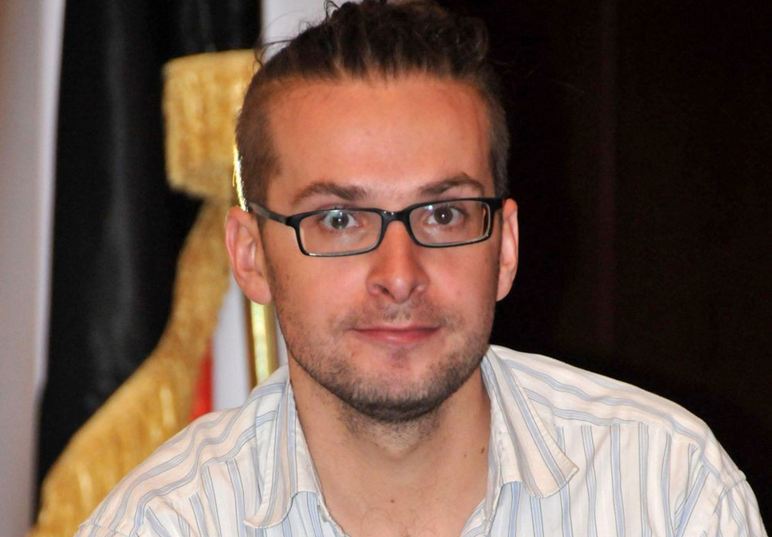Breaking
American hostage killed in Yemen
SANAA, Yemen — An American photojournalist held by al-Qaida militants in Yemen has been killed in a failed rescue attempt, his sister said Saturday.
Lucy Somers told The Associated Press that she and her father learned of her 33-year-old brother Luke Somers’ death from FBI agents at 0500 GMT (12 a.m. EST) Saturday. There was no immediate comment from Washington, nor from security officials in Yemen’s capital, Sanaa.
“We ask that all of Luke’s family members be allowed to mourn in peace,” Lucy Somers said from London.
Yemen’s local al-Qaida branch, Al-Qaida in the Arabian Peninsula, posted a video Thursday that showed Somers, threatening to kill him in three days if the United States didn’t meet the group’s demands, which weren’t specified.
He was kidnapped in September 2013 from Sanaa.
The news of the failed rescue comes after a suspected U.S. drone strike in Yemen killed nine alleged al-Qaida militants early Saturday, a Yemeni security official said before news of Somers’ death. The drone struck at dawn in Yemen’s southern Shabwa province, hitting a suspected militant hideout, the official said. The official did not elaborate and spoke on condition of anonymity as he wasn’t authorized to brief journalists.
At least six suspected militants were killed in an airstrike in the same province last month. Later Saturday, tribal leaders said they saw helicopters flying over an area called Wadi Abdan in Shabwa province.
American authorities rarely discuss their drone strike campaign in Yemen. The strikes are incredibly unpopular in Yemen due to civilian casualties, legitimizing for many the attacks on American interests.
Before her brother’s death, Lucy Somers released an online video describing him as a romantic who “always believes the best in people.” She ended with the plea: “Please let him live.”
In a statement, Somers’ father, Michael, also called his son “a good friend of Yemen and the Yemeni people” and asked for his safe release.
In a statement Thursday, Pentagon press secretary Rear Adm. John Kirby acknowledged for the first time that a mysterious U.S. raid last month had sought to rescue Somers but that he turned out not to be at the site. The U.S. considers Yemen’s al-Qaida branch to be the world’s most dangerous arm of the group as it has been linked to several failed attacks on the U.S. homeland.
Kirby did not elaborate on the joint U.S-Yemeni operation to free Somers, saying details remained classified. However, officials have said the raid targeted a remote al-Qaida safe haven in a desert region near the Saudi border. Eight captives – including Yemenis, a Saudi and an Ethiopian – were freed. Somers, a Briton and four others had been moved days earlier.
Somers was kidnapped in September 2013 as he left a supermarket in the Yemeni capital, Sanaa, said Fakhri al-Arashi, chief editor of the National Yemen, where Somers worked as a copy editor and a freelance photographer during the 2011 uprising in Yemen.
Somers, who was born in Britain, earned a bachelor’s degree in creative writing while attending Beloit College in Wisconsin from 2004 through 2007.
“He really wanted to understand the world,” said Shawn Gillen, an English professor and chairman of Beloit College’s journalism program who had Gillen as a student.
Fuad Al Kadas, who called Somers one of his best friends, said Somers spent time in Egypt before finding work in Yemen. Somers started teaching English at a Yemen school but quickly established himself as a one of the few foreign photographers in the country, he said.
“He is a great man with a kind heart who really loves the Yemeni people and the country,” Al Kadas wrote in an email from Yemen.
He said he last saw Somers the day before he was kidnapped.
“He was so dedicated in trying to help change Yemen’s future, to do good things for the people that he didn’t leave the country his entire time here,” Al Kadas wrote.
Associated Press writers Maamoun Youssef and Jon Gambrell in Cairo and Yusof Abdul-Rahman in London contributed to this report.






















